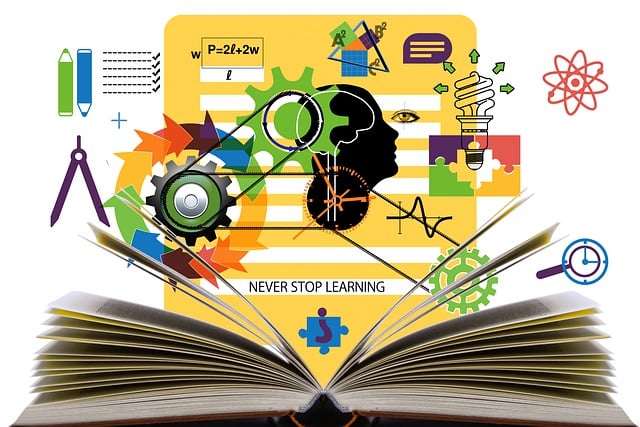Elementary students stand at a pivotal juncture in their academic journey, where mastery of reading and writing lays a cornerstone for future learning. This article delves into the transformative power of coaching in these areas, highlighting the benefits of local tutoring and education services. We explore how individualized attention can significantly enhance students’ reading and writing skills, ensuring they are well-equipped for the academic challenges ahead. Through tailored local tutoring, personalized reading programs, and writing mastery initiatives, we uncover strategies that not only foster literacy but also measure progress effectively. Join us as we navigate the pathways to empowering young learners through coaching in reading and writing.
- Enhancing Elementary Students' Reading and Writing Skills through Tailored Local Tutoring
- The Role of Personalized Reading Programs in Elementary Education
- Writing Mastery: How Coaching Can Improve Young Learners' Composition Skills
- Measuring Progress: Effective Assessment Techniques for Reading and Writing in Elementary School
Enhancing Elementary Students' Reading and Writing Skills through Tailored Local Tutoring

Elementary students stand to gain significantly from tailored local tutoring programs designed to enhance their reading and writing skills. These personalized educational services offer a unique advantage over traditional classroom settings by addressing individual learning needs, paces, and styles. A skilled tutor can pinpoint specific areas where a student may be struggling and provide focused guidance to bolster comprehension, critical thinking, and fluency in reading, as well as creativity, grammar, and structure in writing. By working one-on-one or in small groups, local tutoring allows for immediate feedback and adaptability of teaching methods to optimize learning outcomes. This level of attention is often not feasible in larger classroom environments, making local tutoring an invaluable resource for elementary students aiming to improve their literacy proficiency.
Furthermore, local tutoring services can be seamlessly integrated with the school’s curriculum, ensuring that the skills practiced during sessions are directly applicable to the student’s daily academic life. These education services often employ dynamic and interactive methods that keep students engaged and motivated. By leveraging local resources and expertise, parents and educators can select tutors who are not only knowledgeable in reading and writing but also passionate about fostering a love for learning. This ensures that each child receives the individualized attention and support necessary to thrive academically, setting a solid foundation for their educational journey ahead.
The Role of Personalized Reading Programs in Elementary Education

Incorporating personalized reading programs within elementary education significantly enhances students’ reading skills and overall academic performance. These tailored programs, offered by local tutoring and education services, address individual learning needs and paces, ensuring that each child receives targeted instruction that aligns with their current reading level and learning style. By adapting to the unique challenges and strengths of each student, these personalized approaches help build a strong foundation in reading comprehension, vocabulary development, and fluency. The adaptability of these programs also allows for continuous progress monitoring, enabling educators to adjust the instructional strategies as needed to maximize learning outcomes. Moreover, local tutoring services can provide additional support outside the classroom, offering a consistent and nurturing environment where students can practice new skills and gain confidence in their reading abilities. This personalized attention not only improves reading proficiency but also fosters a love for reading that can last a lifetime.
The integration of technology within personalized reading programs further empowers elementary students by providing them with interactive and engaging learning experiences. Local tutoring and education services often utilize software and online resources that offer a variety of reading materials suitable for different age groups and skill levels. These digital tools can track a student’s progress, offer customized reading content, and even provide immediate feedback to both the learner and educator. This data-driven approach ensures that students are challenged just enough to promote growth without becoming overwhelmed. Additionally, the use of multimedia elements like audio narration, animation, and interactive quizzes makes the learning process more enjoyable and effective for young readers. Through these personalized and technologically enhanced reading programs, local tutoring and education services play a pivotal role in equipping elementary students with the skills they need to excel in their academic journey.
Writing Mastery: How Coaching Can Improve Young Learners' Composition Skills

Local tutoring services play a pivotal role in enhancing young learners’ composition skills through personalized writing coaching. These services offer tailored strategies that address individual student needs, thereby fostering a deeper understanding of grammar, structure, and style in writing. Coaches work one-on-one with students to identify specific areas for improvement, providing targeted feedback and guided practice that aligns with their curriculum. This individualized approach ensures that each child progresses at their own pace, which is often more effective than a classroom setting where instruction may be too broad to cater to every learner’s level.
Moreover, writing coaching equips students with the tools they need to articulate their thoughts clearly and creatively. Through a series of engaging exercises and interactive sessions, young learners become adept at constructing coherent paragraphs and essays. Local education services that offer such coaching emphasize the importance of practice in various writing formats—from narrative stories to persuasive arguments—ensuring that students develop versatility and confidence in their compositions. This holistic approach not only enhances academic performance but also fosters critical thinking, problem-solving, and effective communication skills that are essential for success both in and out of the classroom.
Measuring Progress: Effective Assessment Techniques for Reading and Writing in Elementary School







